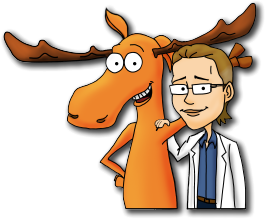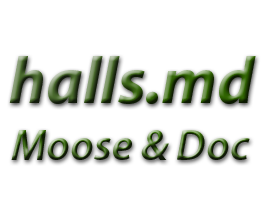The rise in anxiety disorders is truly phenomenal. In fact over 40 million adults, in the US alone, suffer from anxiety according to the National Institute of Mental Health.
Furthermore, anxiety, or one of the anxiety disorders, has become the most common mental illness.
Now, benzodiazepine use, (prescription drugs used for anxiety treatment), has risen by 67% over the last few years. In addition, Zion Market Research estimates that the market worth of these drugs will reach $3.8 billion dollars by 2020.
Important Note:
If you have any anxiety symptoms that are affecting your life, DO go and see your physician or doctor.
Changing your diet and lifestyle can help naturally improve anxiety symptoms, but professional medical advice is always advisable.
However, if you can improve your symptoms to a manageable level without taking prescription drugs, than this can only be a GOOD thing.
How to Reduce Anxiety: The Role of Diet
Interestingly, the monthly internet search volume for Xanax, a prescription drug for anxiety, in the US is 673,000 per month. Compare this to the 1,300 people who search for ‘foods that reduce anxiety’.
Whilst there is certainly a place for prescription drugs in anxiety disorders, changing your diet can be an attractive alternative and/or additional treatment.
Whilst this article is not endorsing avoiding conventional medical help, there are many research studies that show lifestyle changes can pay a BIG role in reducing anxiety naturally.
This article will show the TOP FOUR foods and drinks to Avoid that are scientifically proven to reduce your anxiety.
Before reading about the top foods to avoid if you suffer from anxiety, please take a look at our sister post Top Foods to Eat to STOP Anxiety
1) How to Reduce Anxiety: Cut Out or Cut down on Alcohol
Now, I hate to say it, but many of us know all too well the crippling anxiety that comes alongside a hangover from hell.
It is safe to say, however, that alcohol is NO friend to those that suffer with anxiety.
There is a strange two-way dynamic between alcohol and anxiety. Many anxiety sufferers use alcohol in the belief that it helps them to relax, unwind and overcome social shyness.
Whilst alcohol may feel like it is helping with anxiety symptoms in the short term, research studies show that alcohol,
Lowers mood, disrupts sleep, increases anxiety and produces physical and emotional symptoms.
Furthermore, prolonged drinking can actually cause an anxiety disorder. In addition, if you already have an anxiety disorder throwing alcohol into the mix can also make the symptoms much more severe.
How to Cut Out or Cut down on Alcohol
Now, the issues surrounding both alcohol use and misuse are complex and remarkably common.
So, in 2015 the National Survey on Drug Use and Health (NSDUH) found that a whopping 15.1 million US adults had an alcohol use disorder.
Furthermore, 38 million Americans are drinking too much and the US is not alone on this issue.
Officially, advice from the National Institute of Health (NIH) defines ‘heavy‘ or ‘at risk‘ drinking as follows:-
- Men: More than 4 drinks on any day or 14 per week
- Women: More than 3 drinks on any day or 7 per week
So, if you suffer from anxiety, we advise to cut out drinking all together if possible OR cut down to below the recommended limits
Resources for Help with Alcohol Issues:
2) How to Reduce Anxiety: Cut down on Caffeine
Yes, we hate to say it, but all that coffee, tea and fizzy drinks may be contributing to your anxiety.
Research studies have shown for many years that caffeine can exacerbate both anxiety symptoms and insomnia.
Caffeine stimulates the central nervous system, so if you suffer from anxiety this is the last thing that you need.
Many of us forget that caffeine is a psychoactive drug.
The US Food and Drug Administration (FDA) recommends that daily caffeine intake should not exceed 300 to 400 mg per day.
This is misleading, however, as some people are more sensitive to caffeine than others. Furthermore, what is a safe dose of caffeine depends on your weight too.
Calculate your personal daily, safe caffeine allowance HERE
3) How to Reduce Anxiety: Cut down on Processed and Fast Foods
Modern research suggests that the role of inflammation in the body may well be responsible for a whole host of chronic diseases, including anxiety disorders.
Therefore, it is important to avoid foods that promote inflammation in the body.
So, it comes as no surprise that processed food and fast foods rich in:-
- Sugar
- Fats, especially trans-fats
- Refined carbohydrates
- Salt
promote inflammation.
Indeed, one recent medical study shows a direct relationship between poor diet and anxiety disorders.
By ‘poor diet’, this study points to fast food and processed foods that are low in nutritional content and high in calories.
Furthermore, a 2013 Iranian study shows,
… a significant relationship between increased consumption of processed foods and anxiety
So, what we are looking at is trying to cut down on processed and fast foods that ‘spike’ the blood sugar.
How to Cut down on Processed and Fast Foods
Well, I think the key to swapping an unhealthy diet full of processed foods to a healthy diet is to do it gradually.
It seems that many processed foods may be addictive. Indeed, some foods promote similar addictive behaviours and pathways in the brain, to that of drugs, such as cocaine.
It is not that easy to give up junk food, especially sugar. However, if you cut back on junk foods you actually need less and less to get the same effect.
So, try and gradually cut down on your intake of processed and fast foods. Swap that pizza or burger for a healthy meal with whole foods from each food group.
An example of this would be some lean protein, such as grilled chicken or fish with baked sweet potato, broccoli and carrots.
Find some healthy snacks to replace those pastries, cakes and chips. Think about some healthy fruits, nuts or raw vegetables and hummus.
Try and buy healthy, whole foods and aim for an 80/20 ratio of healthy whole foods to processed or junk food.
4) How to Reduce Anxiety: Cut down on Sugary and Fizzy Drinks
It is well known that being even mildly dehydrated can affect your mood for the worst. It is very important, anyway, but even more so if you suffer from anxiety, to stay hydrated.
So, it is best to avoid carbonated (fizzy) drinks. Common carbonated drinks can actually dehydrate us and many also contain high levels of sugar and caffeine.
Do NOT think those diet versions of your favourite sodas are any better. Aspartame, an artificial sweetener, like sugar, blocks serotonin in the brain. In addition, aspartme can cause mood swings and anxiety.
Indeed some medical studies have found a direct relationship between carbonated energy drinks and anxiety.
Swings in blood sugar, as we are already aware, need to be avoided for those suffering with anxiety. Therefore fruit juices are not the best choice due to the high sugar content.
Obviously, what to drink can be really difficult if you take all this advice on board. Just to recap, we are suggesting limiting alcohol, coffee, fizzy drinks and fruit juices.
The key then, is to drink lots of water. You can always be doubly healthy and choose Kamboucha mixed with sparkling water and benefit from all those probiotics too.
Recent Posts
- Index of ALL our Articles on Anxiety
- The Anxiety Diet: Top Foods to Eat to STOP Anxiety
- Probiotics in the Treatment of Anxiety
- Natural remedies for anxiety
- Hashimoto’s Diet: What Foods to Eat and Why
- Hashimoto’s Diet: Foods to Avoid and Why
- Addicted to Junk Food? Is this Possible?
- Anxiety Attack? Don’t Panic!
- The Fertility Diet: Naturally Improve your Chances of Conception
Other Articles on Halls.md
- Index of Healing Foods for Disease Posts
- Full Index of ALL our Weight Loss Posts
- Index of ALL our Articles on Diets
- Full Index of ALL our posts on Body Mass Index, Ideal Weight and Calculators
References
Bakhtiyari M, Ehrampoush E, Enayati N, Joodi G, Sadr S, Delpisheh A. (et al). (2013) Anxiety as a consequence of modern dietary pattern in adults in Tehran–Iran. Eat Behav. 2013 Apr;14(2):107-12 https://www.ncbi.nlm.nih.gov/pubmed/23557804
Broderick P, Benjamin AB. (2004) Caffeine and psychiatric symptoms: a review. J Okla State Med Assoc. 2004 Dec;97(12):538-42 https://www.ncbi.nlm.nih.gov/pubmed/15732884
Carvalho AF, Stubbs B, Maes M, Solmi M, Vancampfort D. (2018) Different patterns of alcohol consumption and the incidence and persistence of depressive and anxiety symptoms among older adults in Ireland: A prospective community-based study. J Affect Disord. 2018 Oct 1;238:651-658 https://www.ncbi.nlm.nih.gov/pubmed/29957483
Fernández-Rodríguez M, Rodríguez-Legorburu I, López-Ibor Alcocer MI. (2017) Nutritional supplements in Anxiety Disorder. Actas Esp Psiquiatr. 2017 Sep;45(Supplement) https://www.ncbi.nlm.nih.gov/pubmed/29171640
McKinney A, Coyle K. (2006) Alcohol hangover effects on measures of affect the morning after a normal night’s drinking. Alcohol Alcohol. 2006 Jan-Feb;41(1):54-60 https://www.ncbi.nlm.nih.gov/pubmed/162604489
Michopoulos V, Powers A, Gillespie CF, Ressler KJ, Jovanovic T. (2017) Inflammation in Fear- and Anxiety-Based Disorders: PTSD, GAD, and Beyond. Neuropsychopharmacology. 2017 Jan;42(1):254-270. https://www.ncbi.nlm.nih.gov/pubmed/27510423
Richards G, Smith AP. (2016) A Review of Energy Drinks and Mental Health, with a Focus on Stress, Anxiety, and Depression J Caffeine Res. 2016 Jun 1; 6(2): 49–63. https://www.ncbi.nlm.nih.gov/pmc/articles/PMC4892220/
Winston AP, Hardwick E, Jaberi N, (2006) Neuropsychiatric effects of caffeine Advances in Psychiatric Treatment, Volume 11, Issue 6 https://www.cambridge.org/core/journals/advances-in-psychiatric-treatment/article/neuropsychiatric-effects-of-caffeine/7C884B2106D772F02DA114C1B75D4EBF


